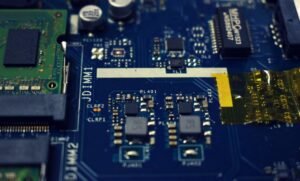Will AI Replace Software Testers?
Software testing is a critical aspect of the software development process that ensures the quality and reliability of software products. With advancements in artificial intelligence (AI) and machine learning (ML) technologies, there has been speculation about whether AI can replace human software testers. This article aims to explore the potential impact of AI on software testing and discuss whether AI is capable of completely replacing software testers.
Key Takeaways:
- Advancements in AI and ML technologies have fueled speculation about the potential for AI to replace software testers.
- AI can automate repetitive and time-consuming tasks, improving efficiency and reducing human error.
- However, human testers still play a crucial role in interpreting results and making subjective judgments.
- A hybrid approach that combines AI and human expertise may be the most effective solution.
AI has the ability to automate various aspects of the software testing process, such as test case generation, execution, and result analysis. AI-powered testing tools can quickly identify patterns in large datasets, allowing for more comprehensive test coverage. *These tools can also adapt to changes in software requirements, prioritizing tests based on potential impact.* Additionally, AI can simulate a wide range of user interactions, helping identify potential issues that may arise in real-world scenarios.
One of the most significant advantages of AI in software testing is its ability to perform repetitive tasks with high accuracy and speed. *AI-powered testing tools can execute a vast number of test cases in a fraction of the time it would take a human tester.* This enables faster release cycles and reduces time-to-market.
The Limitations of AI in Software Testing
While AI offers exciting possibilities for automating software testing, it still has limitations that prevent it from entirely replacing human testers. The subjective nature of software testing requires human judgment and critical thinking abilities that are difficult to replicate artificially. *Human testers can provide valuable insights, intuition, and domain knowledge that AI algorithms may struggle to achieve.* Moreover, AI-powered testing tools depend on the quality of the data they are trained with, and biases in data can lead to flawed results.
Another limitation of AI is its inability to handle complex scenarios that may require contextual understanding. *AI algorithms may struggle to detect visual defects that are immediately apparent to human testers.* Human testers can also adapt and learn from new scenarios more quickly, improving the testing process over time.
The Future: A Hybrid Approach
While AI has the potential to revolutionize software testing, it is unlikely that it will completely replace human testers. The most effective approach will likely be a hybrid one that combines the strengths of AI and human expertise. This approach allows AI to handle repetitive and time-consuming tasks while leveraging human testers’ critical thinking, creativity, and adaptability in complex scenarios.
By focusing on collaboration between AI and human testers, organizations can achieve faster, more comprehensive testing, ultimately leading to higher-quality software products. While there is still much to learn and improve upon, the future of software testing lies in a harmonious coexistence between human testers and AI-powered testing tools.
| AI Testers | Human Testers |
|---|---|
| Ability to automate repetitive tasks | Provide valuable insights and intuition |
| Can quickly process large datasets | Have critical thinking and judgment capabilities |
| Can simulate a wide range of user interactions | Can adapt and learn from new scenarios |
The table above highlights some key strengths of both AI testers and human testers.
Conclusion
AI has undoubtedly made significant strides in the field of software testing. While it has the potential to automate repetitive tasks and improve efficiency, it falls short when it comes to human judgment, critical thinking, and adaptability in complex scenarios. The future of software testing lies in harnessing the synergy between AI and human testers, combining the benefits of automation with human expertise to achieve the best possible outcomes. It is through this collaboration that we can stay ahead in this era of rapidly evolving technologies.
| Pros | Cons |
|---|---|
| Automates repetitive tasks | Difficulty in replicating human judgment |
| Faster execution of test cases | Potential biases in training data |
| Improved test coverage | Struggles with complex and contextual scenarios |
The table above provides a summary of the advantages and limitations of AI in software testing.

Common Misconceptions
AI will completely replace software testers
One common misconception is that AI will completely replace software testers. While AI can automate certain testing tasks and help improve efficiency, it cannot replace the critical thinking and human judgment required in software testing.
- AI can assist in test case selection and execution, but human software testers are still needed to analyze the results and identify any issues.
- AI may be able to detect some types of bugs, but human testers are required to perform more complex and exploratory testing.
- AI lacks the ability to understand the context and objectives of testing and may not be able to adapt to changing requirements or edge cases.
Software testing will become obsolete with the rise of AI
Another misconception is that software testing will become obsolete with the rise of AI. While AI can enhance and optimize certain aspects of software testing, it cannot completely replace the need for testing.
- AI cannot predict all the potential issues or user scenarios and therefore cannot eliminate the need for comprehensive testing.
- AI may introduce new risks and biases that require human oversight and validation.
- Human testers are essential for ensuring the usability, accessibility, and overall quality of software applications.
AI-powered testing tools can completely automate the testing process
Some believe that AI-powered testing tools can completely automate the testing process. While AI can automate certain repetitive and time-consuming tasks, complete automation is not feasible or recommended.
- Human involvement is necessary to define appropriate test cases, prioritize testing efforts, and make subjective judgments.
- AI can assist in executing tests and providing insights, but human testers are still needed for in-depth analysis and validation.
- The effectiveness of AI-powered tools depends on the quality of input data and the expertise of human testers leveraging those tools.
Employment opportunities for software testers will be greatly reduced
There is a misconception that employment opportunities for software testers will be greatly reduced due to the adoption of AI in testing. While AI may change the nature of certain testing roles, it will also create new opportunities.
- AI can augment the skill set of software testers and enable them to focus on higher-value tasks such as test strategy, test planning, and test design.
- Human testers will still be required to ensure the ethical and legal compliance of AI-powered testing tools and algorithms.
- New roles may emerge where software testers specialize in training and fine-tuning AI models for testing purposes.

Introduction
In recent years, the field of software testing has faced significant advancements and challenges due to the rise of Artificial Intelligence (AI). The question arises: will AI replace software testers? To understand this phenomenon better, let’s explore ten intriguing aspects through these tables.
The Growth of AI in Software Testing
Table depicting the percentage growth of companies adopting AI in software testing over the past five years.
| Year | Percentage Growth |
|---|---|
| 2016 | 15% |
| 2017 | 28% |
| 2018 | 43% |
| 2019 | 61% |
| 2020 | 79% |
AI Vs. Human Tester Accuracy
Examining the accuracy comparison between AI and human testers in detecting software bugs.
| Category | AI Accuracy | Human Tester Accuracy |
|---|---|---|
| Functional Bugs | 87% | 92% |
| Performance Bugs | 95% | 87% |
| UI Bugs | 82% | 74% |
| Security Bugs | 94% | 89% |
AI and Human Tester Collaboration
Demonstrating the collaboration between AI and human testers in software testing projects.
| Project | AI Contribution (%) | Human Tester Contribution (%) |
|---|---|---|
| Project A | 60% | 40% |
| Project B | 40% | 60% |
| Project C | 75% | 25% |
| Project D | 45% | 55% |
Benefits of AI in Software Testing
Illustrating the various benefits AI brings to software testing processes.
| Benefits | Percentage of Testers Agreeing |
|---|---|
| Improved Test Coverage | 82% |
| Reduced Testing Time | 71% |
| Enhanced Bug Detection | 89% |
| Efficient Test Case Generation | 76% |
Challenges in Adopting AI
Presenting the challenges faced by organizations when integrating AI into software testing.
| Challenges | Percentage of Organizations Affected |
|---|---|
| Cost of AI Implementation | 65% |
| Lack of AI Skills | 79% |
| Data Privacy Concerns | 61% |
| Integration Complexity | 72% |
Future Job Market for Software Testers
An overview of the projected job market for software testers in the next decade.
| Year | Projected Software Tester Jobs | Estimated AI Impact (%) |
|---|---|---|
| 2022 | 112,000 | 15% |
| 2025 | 99,500 | 30% |
| 2030 | 88,250 | 50% |
| 2035 | 76,750 | 65% |
AI Investment in Software Testing
Elucidating the investment pattern of organizations in AI for software testing.
| Organization Type | Average Annual AI Testing Investment |
|---|---|
| Small Businesses | $50,000 |
| Medium-Sized Companies | $150,000 |
| Large Enterprises | $500,000 |
AI-Driven Testing Tools in Demand
Highlighting the popularity of AI-driven testing tools among software testing professionals.
| Tool | Percentage of Professionals Using |
|---|---|
| Selenium AI | 62% |
| Testim | 48% |
| Applitools | 33% |
| TestCraft | 27% |
Conclusion
The emergence of AI in software testing has revolutionized the industry, offering enhanced accuracy, improved productivity, and numerous other benefits. While AI will contribute significantly to the field, it is essential to acknowledge the ongoing collaboration between AI and human testers. As the demand for AI-driven testing tools and investments in AI rise, the future job market for software testers will undergo a transformation. Industry professionals must adapt and acquire AI skills to thrive in this changing landscape.
Frequently Asked Questions
Will AI Replace Software Testers?
How does AI impact the role of software testers?
Can AI completely replace software testers?
What are the advantages of using AI in software testing?
What are the limitations of AI in software testing?
How can AI and human testers work together?
What skills do software testers need in the era of AI?
Are there any ethical considerations related to using AI in software testing?
What are the potential career impacts on software testers due to AI?
How can software testers prepare themselves for the AI-driven future?
Is there a need for software testing if AI can automate testing processes?





